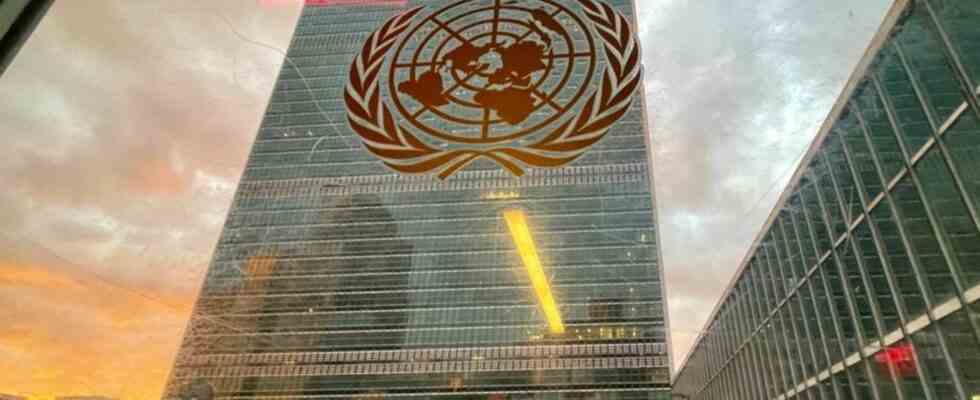Historical Majority
UN General Assembly condemns Russia’s annexations
The UN General Assembly voted on a resolution on the annexations of Moscow. photo
© Eduardo Munoz/POOL Reuters/AP/dpa
A clear majority against the annexation of Ukrainian territories by Russia had been expected. But the result in the New York UN General Assembly exceeded even the boldest forecasts.
With a historic majority, the world community condemned Russia’s illegal annexations of Ukraine and declared them null and void. 143 of the 193 members of the UN General Assembly voted in New York on Wednesday for a corresponding resolution – 5 countries voted against, 35 abstained. Only Belarus, North Korea, Nicaragua and Syria voted together with Russia. Although the decision is not binding under international law, it is considered a strong political signal and reveals Moscow’s international isolation.
The resolution passed on Wednesday condemns and invalidates Russia’s annexation. In addition, the Kremlin is asked to reverse the incorporation of the partially occupied regions of Luhansk, Donetsk, Zaporizhia and Cherson. At the end of September, Kremlin chief Vladimir Putin announced the annexation after several sham referendums.
Ukrainian President Volodymyr Zelenskyy hailed the decision as historic: “The world has spoken – Russia’s attempted annexation is worthless and will never be recognized by free nations,” he wrote on Twitter. The German UN mission wrote: “The international community has come together to defend the UN Charter. Unlike Russia, Ukraine is not alone.” The American UN Ambassador Linda Thomas-Greenfield spoke of a “monumental day for the United Nations”.
Result exceeds the most optimistic forecasts
The result was even better than the 141 votes in the General Assembly to condemn Russia’s invasion of Ukraine in March – and also the 100 votes for a similar resolution after the annexation of Crimea in 2014. Also Brazil, Turkey and Saudi Arabia voted in favor of the resolution. With China and India, however, two powerful states with a population of around 2.8 billion abstained. None of the former Soviet republics voted with Moscow. Meanwhile, more than a dozen African countries abstained.
Even forecasts by the greatest Western optimists were exceeded with the result. Before the vote, observers had assumed that in many countries, especially in Africa and Latin America, a certain degree of war weariness and dependence on Russia could lead to less support for the resolution. Some states find that the Ukraine war is marginalizing other devastating conflicts and preventing progress.
American ambassador to the UN: “You could be next”
At the emergency session of the General Assembly, which began on Monday, diplomats from dozens of countries warned that every UN member country must have a self-interest in condemning Russia. “Today it is Russia invading Ukraine. But tomorrow it could be another nation whose territory is violated. It could be you. You could be next,” said US Ambassador Thomas-Greenfield. Germany expressed a similar view: “The sovereign equality and territorial integrity of each of us would be at the mercy of our neighbors”.
Ukraine had asked the members to accept the resolution, Moscow spoke of a “dangerous polarization” at the UN. On Thursday, China warned of bloc formation and a new Cold War and called for peace negotiations. A draft resolution similar to the one now passed failed at the end of September in the UN Security Council due to opposition from Russia. There, resolutions have binding effect under international law. However, the permanent members Russia, China, the USA, France and Great Britain can block any decision there with their vetoes.

